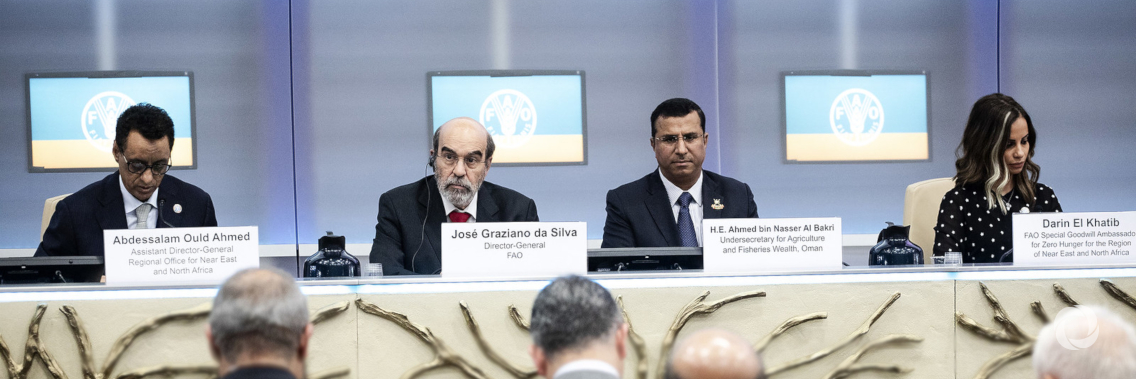Countries in the Arab region need to set up policies supporting local food production and improve their governance of natural resources if hunger is to be eradicated from the Near East and North Africa by 2030.
This was FAO Director-General José Graziano da Silva’s message to participants at The Arab Region towards Zero Hunger: Challenge and Opportunities event on the sidelines of the 41st Session of the FAO Conference.
“No one is questioning the lack of natural resources in the region and that the main issue is water scarcity. But when you look at how water is used, you see a lack of good governance,” the FAO chief said.
He pointed out that many countries in the region – which has a population of some 400 million – do not have a central authority to manage the use of water and of other resources.
“Lack of policies and of good governance makes the problems of the Near East and North Africa region worse,” Graziano da Silva said and asked countries in the region to consider setting up a “central authority” to better manage the use of water.
The FAO Director-General also urged countries to put more emphasis on stimulating local food production, pointing out that the issue of obesity – a growing concern in the region – is also due to a reliance on importing cheap and unhealthy food.
The region has been grappling over the past years with many challenges that have consequently led to a serious setback in its progress towards Zero Hunger.
A recent food insecurity analysis shows that 52 million people suffer from hunger in the region’s 18 countries. But whilst hunger – driven mainly by conflict – is on the rise, so are overweight and obesity, with nearly one in three adults being obese.
Several experiences and visions were shared at the side event as a spur to accelerate action on ending hunger in the region.
Original source: FAO
Published on 27 June 2019

